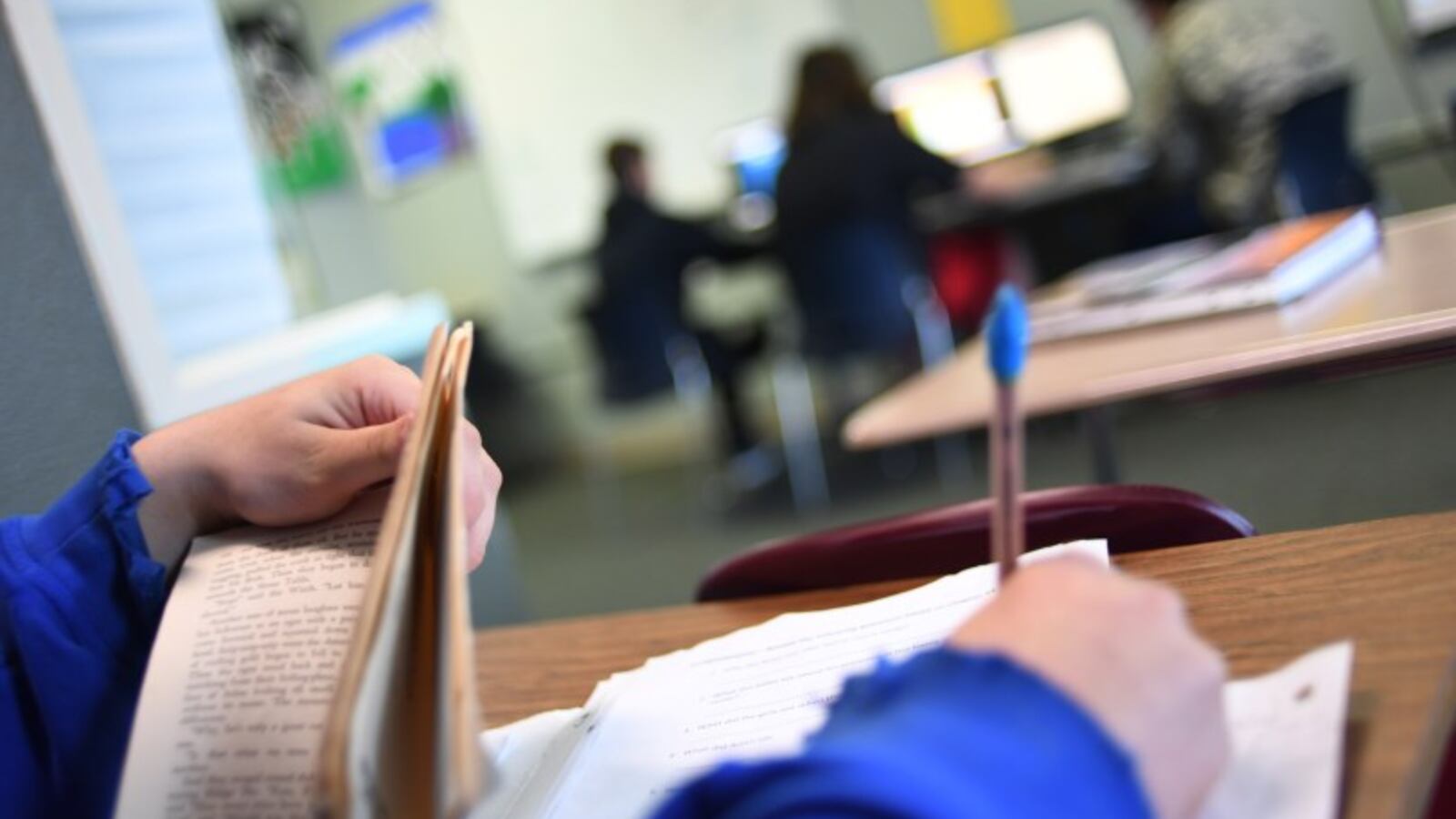For two years in a row, Colorado education officials have raised concerns about how students with special needs are falling far behind on state English and math tests.
This week, we’re getting a better sense of which school districts are following the state trend and which ones are bucking it.
The state on Monday released data from the 2016 and 2017 PARCC exams broken down by different student groups. Chalkbeat has spent a few days looking at the data, first by race and ethnicity and then by socioeconomic status. Today we’re looking at how students with learning disabilities in the state’s 10 largest school districts performed compared to their peers.
Students with learning disabilities historically underperform the general student population on standardized tests. However, advocates say that with the right help, students with non-cognitive disabilities should be just as likely to score well.
That isn’t happening in many of the state’s largest school districts. Here’s a look at how the results break down:
Some of the widest gaps are in northern Front Range school districts such as Poudre, Boulder Valley and St. Vrain.
Boulder is a unique case. While the achievement gap there is wide, students with learning disabilities are outperforming their state peers.
Boulder officials suggested a longstanding and close partnership between their special education department and curriculum specialist could be a key factor in the higher scores.
“There’s a lot of cross training,” said Samantha Messier, Boulder’s assistant superintendent of instructional services and equity. “That’s something that is paying off for students.”
Meanwhile, school districts such as Denver and Aurora are rethinking some of their special education policies.
In Denver, the district is pushing to have students with learning disabilities spend more time in general education classrooms.
“The main focus is on providing the individualized supports that students with disabilities need,” said Superintendent Tom Boasberg. “And we’re significantly increasing our inclusion practices. Many more of our students with disabilities are included more of the time with their general education peers.”
The charter-friendly school district has also required its charter schools to take on greater responsibility in meeting the needs of students with disabilities.
The Aurora school district has hired consultants to help the district better identify students with learning disabilities, intervene earlier and provide them with the proper learning environment.
“We’ve gotten better with early interventions,” said Superintendent Rico Munn.

